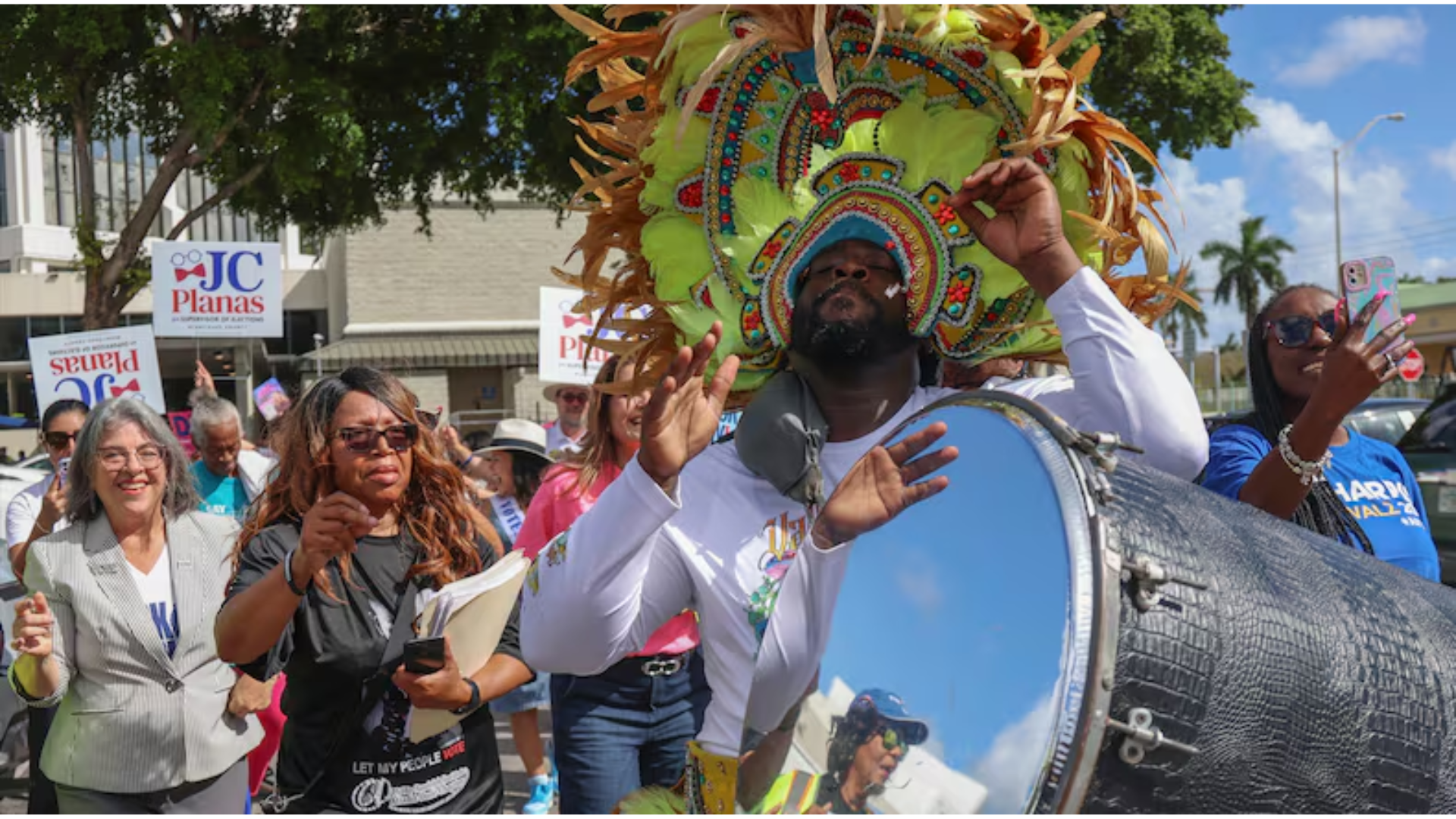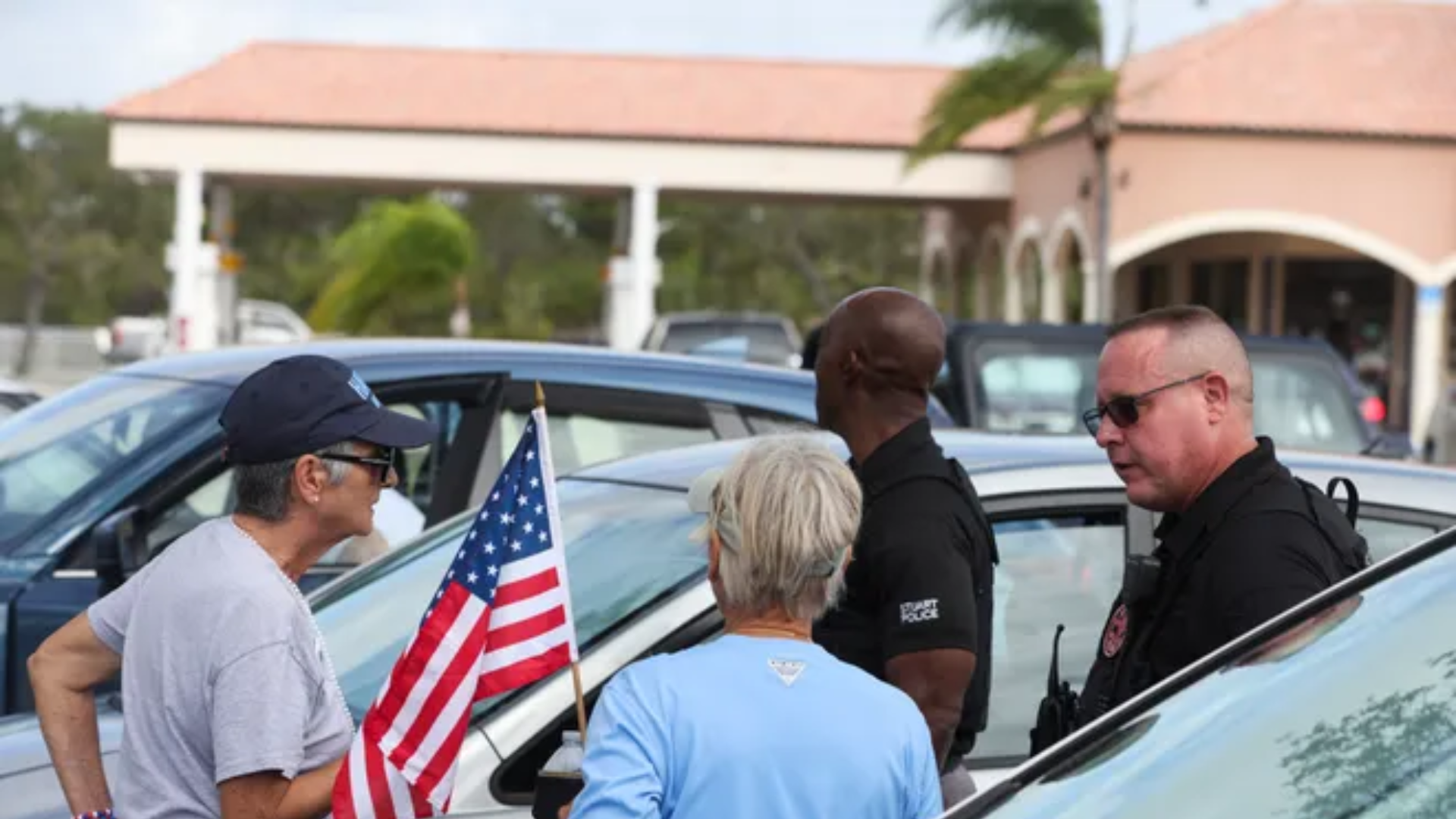
In the final days leading up to the election, Vice President Kamala Harris and former President Donald Trump are locked in tight races in the pivotal battleground states of Georgia and North Carolina, according to recent CNN polls. Harris and Trump’s nearly equal support in these states reflects a competitive landscape that could shape the election’s outcome, with voters closely divided on key issues and demographics showing varied levels of support.
The polls, conducted by SSRS for CNN, show that in Georgia, Trump leads by a slim margin of 48% to Harris’ 47%, while in North Carolina, Harris edges out Trump 48% to 47%. These results fall within each state’s margin of error, indicating no clear frontrunner. Both states carry significant political weight, as North Carolina has leaned Republican in recent elections, while Georgia swung to Biden in 2020 by a narrow margin, marking the first Democratic victory there since 1992.

A decisive 95% of likely voters in both states report having already made their choice, leaving little room for significant shifts before Election Day. Of those, over half have already cast their ballots, with early voters favoring Harris by modest margins: a 7-point lead in Georgia and a 6-point lead in North Carolina.
Support for each candidate appears rooted in positive endorsement rather than opposition. In Georgia, 69% of Harris’ supporters say they’re voting to support her, compared to 67% in North Carolina, largely driven by strong backing from Black voters. Conversely, Trump’s base also shows a high level of commitment, with 81% of his supporters in Georgia and 75% in North Carolina affirming they’re voting for him out of support rather than opposition to Harris.
Demographic splits reveal further complexities. Harris holds a broad lead among Black voters and voters with college degrees, while Trump commands strong support among White voters without college degrees, leading 81% to 15% in Georgia and 65% to 31% in North Carolina. Gender divides are also evident: men favor Trump by 7 points in both states, while women show mixed support, with Harris leading among women in North Carolina by 9 points but holding only a slight lead in Georgia.
Suburban and rural divides further illustrate the candidates’ strengths. Harris leads among urban voters in both states, while Trump has the advantage in rural areas. Suburban voters in North Carolina favor Harris by a 53% to 42% margin, whereas suburban voters in Georgia remain almost evenly split, with 48% for Harris and 47% for Trump.

Issues are proving to be the primary drivers for voters’ decisions in Georgia and North Carolina, with 58% in Georgia and 56% in North Carolina prioritizing candidates’ stances on key topics over their leadership traits. When it comes to specific issues, Trump holds the edge on handling immigration, foreign policy, and the economy. In contrast, Harris has an advantage on abortion and reproductive rights, particularly among women voters, where she leads by 15 points in North Carolina and 13 points in Georgia. The candidates are nearly even on who is best trusted to protect democracy.
Harris is perceived as the more empathetic candidate in Georgia, with voters there saying by an 8-point margin that she better understands people like them. In both states, Harris also leads on perceived honesty and trustworthiness, while Trump is slightly favored as the candidate more capable of bringing change.
Confidence in the election process remains high, though partisan divides are apparent. About 80% of likely voters in both states express confidence in accurate voting and counting, a figure that rises to 90% among Harris supporters. Among Trump’s supporters, confidence is lower, with only 74% in North Carolina and two-thirds in Georgia indicating similar trust.
These surveys were conducted from October 23-28, 2024, with 732 voters in Georgia and 750 in North Carolina, yielding margins of error of 4.7 points for Georgia and 4.5 points for North Carolina. As the election approaches, the close race in these states underscores their crucial role in the election and highlights the sharp contrasts in voter priorities and demographics shaping the competition between Harris and Trump.













